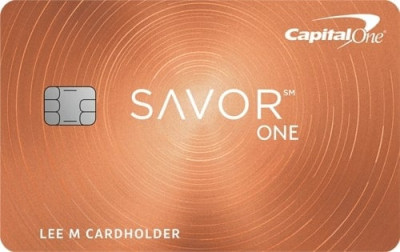Cards for Students
College students often find themselves at a critical juncture when it comes to their financial future. Establishing a strong credit history, a fundamental component of financial stability, can be challenging. Banks seek long-term customer relationships but are cautious about extending credit to individuals who may struggle to repay it.
This is where student credit cards come into play. Designed with smaller credit limits and rewards tailored to college students, these credit cards serve as a gateway to more advantageous credit opportunities in the future.
Best Cards for Students offers

The Capital One SavorOne Student Cash Rewards Credit Card stands out among student cards with its combination of triple rewards in popular categories and a $0 annual fee.
Pros and cons
FAQ
Is Visa or Mastercard better for students?
Can a 22 year old get a credit card?
Who should apply for a student credit card?
Qualifying for a student credit card may not solely depend on your college student status. Here are some key considerations:
- Check Eligibility Requirements: The requirements for student credit cards can vary among issuers. Review the terms and conditions of a specific card on the issuer's website to determine if being a college student is a primary eligibility criterion.
- Age Restrictions: Federal law limits credit card issuance to individuals under the age of 21. If you are under 21, you generally need to provide proof of independent income or have a co-signer. Most major credit card issuers do not allow co-signers, which can make it challenging for individuals under 21 to qualify.
- Proof of Income: Individuals 21 or over are required to provide proof of income. However, this income can be any amount to which they have a "reasonable expectation of access."
- Credit History: Student credit cards are typically designed for individuals with limited or no credit history. If you have a bad credit history due to missed payments or other issues, you may face challenges qualifying for a student card. In such cases, you might want to explore credit cards specifically designed for individuals with bad credit.
Understanding the eligibility criteria and being aware of federal regulations regarding credit card issuance to individuals under 21 can help you determine your eligibility for a student credit card.
Making the most of your student credit card
Once you have been approved for a credit card, follow these tips to use it wisely and build your credit effectively:
- Purchase Within Your Means: Resist the temptation to make purchases that you cannot afford to cover with cash. Avoid turning your credit card into a tool for excessive spending.
- Pay On Time and In Full: To avoid interest charges, pay your credit card bill on time and in full every month. This responsible use will contribute positively to your credit history.
- Pay More Than the Minimum: If you cannot pay the full balance, strive to pay more than the minimum amount due. This approach accelerates progress in reducing your debt.
- Manage Credit Utilization: Keep your credit card balance below 30% of your credit limit. This helps maintain a favorable credit utilization ratio, positively impacting your credit score.
Strategic Use of Sign-up Bonus and Rewards: Plan your credit card application around upcoming expenses to meet sign-up bonus requirements without unnecessary spending. Choose a card with rewards aligned with your typical spending habits.
Keep Your Account Open: If your credit card has no annual fee, consider keeping it open to preserve the length of your credit history, which positively affects your credit score. Closing a credit card may have a negative impact on your credit score.
What makes college student credit cards different from regular cards?
College student credit cards are generally designed for individuals who are new to credit and may have a limited credit history. Unlike regular credit cards, student cards may place less emphasis on a robust credit history and consider other factors that indicate creditworthiness, such as income and enrollment in college.
These cards often come with features tailored to those new to credit, including incentives for responsible behavior, like rewards for on-time payments. Additionally, some student cards provide complimentary access to credit scores and tools to help users learn how to manage credit responsibly.
It's essential to note that while student cards may be more lenient toward applicants with limited credit history, they are not intended for individuals with bad credit. If your credit score has been significantly impacted by mistakes or challenges, consider looking into credit cards designed for "rebuilding" credit, such as secured cards, rather than those aimed at "establishing" credit, like student cards.
Is it easy to get a student credit card?
Getting a credit card as a student has become more challenging compared to earlier times, especially for those without significant income to report on their applications. In the past, credit card issuers aggressively targeted college campuses, offering incentives and making it relatively easy for students to obtain credit cards, even without a substantial income. However, this approach changed with the implementation of the Credit Card Act of 2009.
The Credit Card Act of 2009, a federal law, imposed restrictions on the issuance of credit cards to individuals under 21. According to the law, individuals under 21 could only qualify for a credit card if they had independent income or a co-signer willing to guarantee their debt. This regulation aimed to protect young consumers from accumulating unmanageable debt.
As a result, students today may find it more challenging to secure a credit card without a reliable source of income or a co-signer. Credit card issuers are likely to consider factors beyond just student status, placing greater emphasis on an applicant's ability to repay and manage credit responsibly.